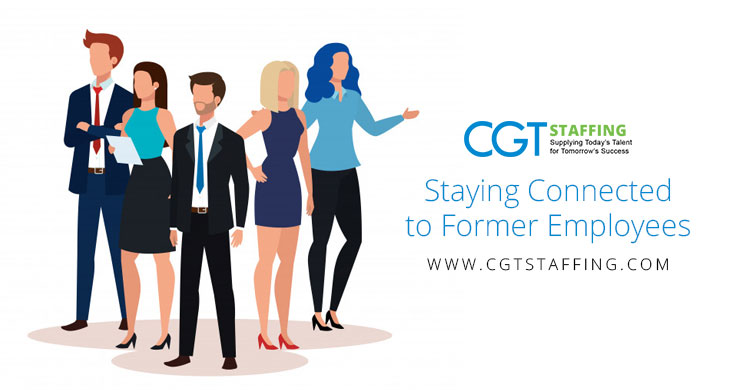Losing workers is always the least desirable option for managers, recruiters, and third-party services like a staffing agency. Simply put, employee turnover is expensive. It is usually much cheaper to be empathic to your workers and help them adjust or correct their performance constructively. However, in some cases, despite an excellent working relationship, employee departure is inevitable. In industries where turnover is very high, such as the mortgage lending sector, hiring stakeholders like in-house HR and mortgage recruiters can attest to the benefit of staying connected to the best talent that passes through your firm.
Here’s how you can continue to derive benefits from your former employees even after they have left your employment.
Table of Contents
Why Businesses Need to Stay In Touch With Former Workers
The workforce of today is composed largely of millennials or older Gen Z workers. This is to be expected, as in most cases many baby boomers are unable to adapt to new roles. In many tech roles, for instance, you are more likely to see your IT staffing source younger workers in touch with modern technology. This younger workforce is also much more discerning when it comes to employment. There will always be a shortage of talented workers, and you can be sure many competing businesses will be looking to recruit the same candidates.
Younger workers typically choose a new employer after some independent research, especially if you’re not a top-tier company. Websites like Glassdoor exist to offer transparency when considering a new employer. The strength of these platforms comes from the testimony of existing and former workers. If the reviews are good, your employer brand grows stronger. With that in mind, there are many more advantages to staying in touch with former workers, including:
Outgoing Workers May Return In the Future
We’ve already established how losing workers can often be expensive to businesses, especially if it happens frequently. The same risk exists with hiring new replacements. A bad hire may slip through the cracks in your in-house talent acquisition. They will only become factually apparent once the start showing less-than-satisfactory scores in your performance appraisal methods.
By then, a lot of damage has usually occurred. Processes may have slowed down, team members may be in conflict, there may arise knowledge gaps or poor process management. Wouldn’t it be far simpler to get your previous worker back again? Boomerang employees are employees that may return to you after having previously moved on to another employer. Instead of being hostile to them, you should consider the reality of rehiring an experienced worker as being far cheaper than the risk of a bad new hire.
An Alumni Network May Help Mentorship
Outgoing employees usually have picked up valuable experience and knowledge during their tenure in your workforce. As such, they are a valuable repository of experience and information from whom many of your younger, newer workers could benefit. While this may not always be the case, former workers may be open to externally mentoring some of your workers.
In technical roles such as cybersecurity consulting, this can often speed up the process of bringing new workers up to speed and boosting their professional development as well. A good mentorship program using a former employee is a great way to cultivate new leadership to replace the old guard.
Outgoing Employees Can Still Sell Your Employer Brand
Remember, it is not just recruiters with a huge talent pipeline that sell your employer brand value. Employees are by far the most naturally suited EVP ambassadors you have. If you offer former workers a great experience and part ways amicably, you can be sure that will leave a positive perception of you as an employer. While the employee in question may not always reverse their decision to leave, this perception will persist and make them more authentic employer brand ambassadors.
In many cases, you may find these former employees referring skilled workers to you, or even helping you source new talent using their growing professional network. This can be one of the most valuable benefits to keeping in touch with former workers, even if it may not always be as frequent as the first two.
